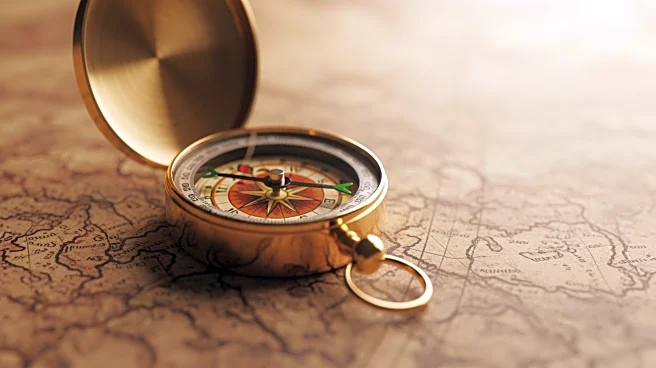What is the story about?
What's Happening?
President Trump has announced his decision to declassify secret government records related to the disappearance of Amelia Earhart, the renowned American aviation pioneer who vanished in 1937. Earhart's disappearance occurred while she was attempting to become the first woman to fly around the world. The mystery surrounding her disappearance has captivated the public for decades, with theories ranging from a crash due to fuel exhaustion to more elaborate claims involving Japanese capture or espionage. While some FBI files and Navy search reports have been declassified over the years, many records have remained inaccessible, fueling speculation about a potential cover-up. Trump's announcement aims to release all government records related to Earhart's final trip and other aspects of her life.
Why It's Important?
The declassification of these records could provide new insights into one of the most enduring mysteries in aviation history. For historians and aviation enthusiasts, this move represents an opportunity to explore previously inaccessible information that might shed light on Earhart's fate. The release of these documents could also impact public perception and historical narratives surrounding Earhart's disappearance. Additionally, it may influence ongoing efforts by researchers and historians to locate the wreckage of Earhart's plane, potentially leading to new discoveries. The decision underscores the continued public interest in Earhart's story and the broader implications of transparency in government records.
What's Next?
Following the declassification, researchers and historians are expected to analyze the newly available documents to uncover any new evidence or insights into Earhart's disappearance. This could lead to renewed expeditions or investigations aimed at locating the wreckage of her plane. The release may also prompt discussions among historians and the public about the accuracy of existing theories and the potential for new interpretations. As the documents become available, there may be increased media coverage and public interest in Earhart's story, potentially leading to documentaries or publications exploring the new findings.
Beyond the Headlines
The declassification of Earhart's records raises questions about the ethical responsibilities of governments to disclose historical information. It highlights the balance between national security and public interest in historical transparency. The move may set a precedent for the release of other historical records, encouraging further declassification of documents related to unresolved historical events. Additionally, it reflects the cultural fascination with Earhart as a pioneering figure in aviation and women's history, emphasizing the ongoing relevance of her story in contemporary discussions about gender and exploration.
















